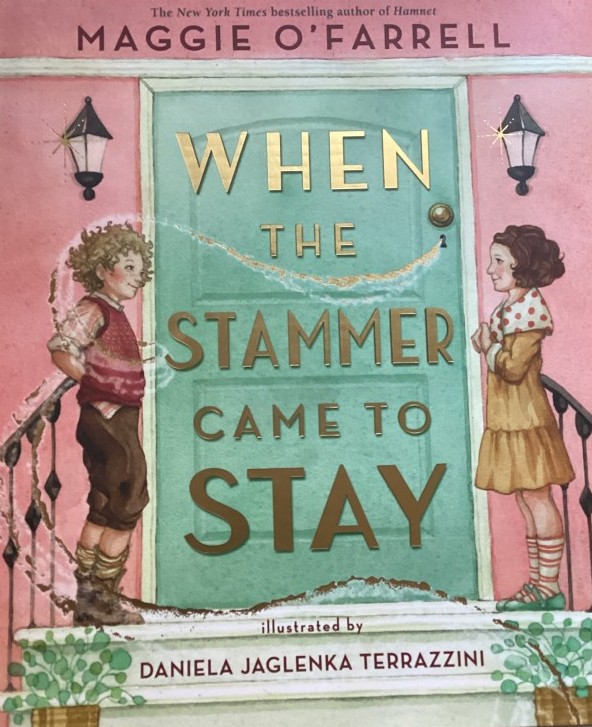Inspiring Young Readers
 posted on 09 Dec 2024
posted on 09 Dec 2024
When the Stammer Came to Stay by Maggie O’Farrell, illustrated by Daniela Jaglenka Terrazzini
When I was very much younger than I am now and just leaving university, I had a brief friendship with someone who had a pronounced stammer. He would often get stuck on a word or a combination of words that stopped him in his tracks midway through a sentence or a thought. For me and others who were with him, watching his battle with the words could be very difficult to deal with – just the length of time he was taking to find that word or an alternative tempted you to want that gap filled and to do it yourself as a sort of act of compassion. But, we soon came to understand, that was the worst thing to do – something that infuriated him more than the actual stammer. And, we all found this much easier to understand once we realised that we were ill-equipped to second guess what he was going to say because his conversation was much too interesting, provocative and original to anticipate.
Award-winning novelist, Maggie O’Farrell has been open and forthright about her own experiences of having a stammer and her new book for children, When the Stammer Came to Stay, introduces younger readers (and plenty of older ones too) to the emotions that people with a stammer deal with on a day to day basis (and has plenty to say about what living with someone who stammers is like).
But it would be a mistake to think that this is just a book about a child suddenly developing a stammer because it’s so much more than that. It’s also about family relationships, the love of two sisters for each other, sharing a multi-occupied house and how we can all reconcile ourselves to our own idiosyncrasies.
Bea and Min are sisters living in a house with some exciting lodgers and share a bedroom at the top of the house. But that’s about all they share in common because Bea is obsessively tidy and orderly while Min is spontaneous and messy. A strip of tape divides the room in two and the sisters live in their different ways but happily together as sisters.
Then one day something strange happens – Min opens her mouth to speak and nothing will come out of her mouth. She keeps this a secret for as long as she can but she comes to believe a demon of some kind is stealing the words from her mouth just as she starts to form the words. Eventually she confides her fears and the problem she’s having to her sister and together the sisters come to believe that Min has a ‘dybbuk’ – a supernatural being that’s taking away her power of speech.
So how will the girls deal with the dybbuk? How will Min get her voice back? I’m not going to tell you the answers to these questions because I very much want you to read this for yourself. It’s a life-affirming story that isn’t ultimately about Min alone but about Bea too and, by implication, everyone who lives alongside the girls.
The book is also superbly illustrated by Daniela Jaglenka Terrazzini who provides full and part-page colour drawings that, at times, reminded me of the late, great Shirley Hughes. Tremendous stuff.
Available now from Walker Books, you will be able to get a copy from your local independent bookshop – who will be happy to order you a copy if they don’t have it on their shelves.
Terry Potter
December 2024